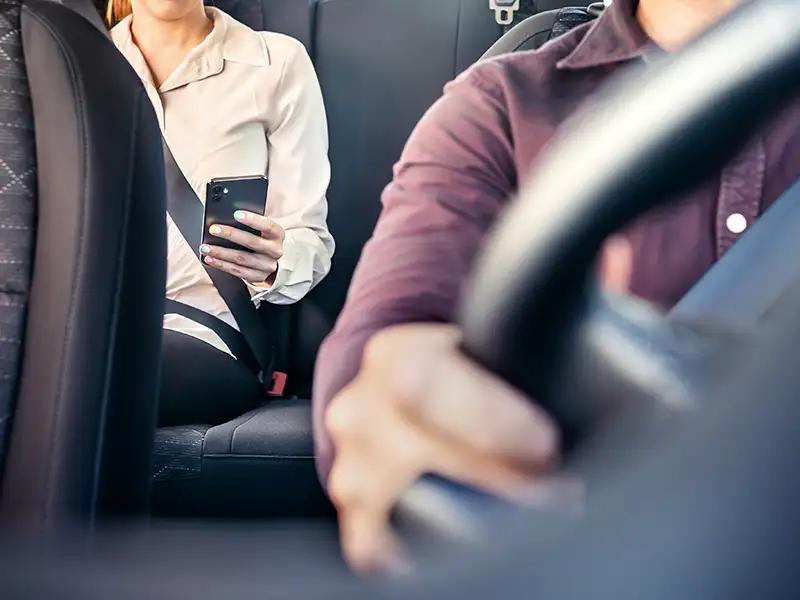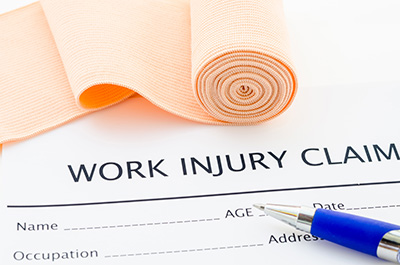
Learn about your rights if you’ve been injured as an independent contractor in Birmingham
Lately, it seems there has been a surge of litigation and uproar surrounding workers and their relationship to the companies that procure their services, especially in the truck driving and ridesharing industries. While a contentious relationship with the boss is a tale as old as time, the current facet of this controversy is catching the attention of workers and creating buzz in courts around the country. The new source is the classification of workers.
The companies want, and indeed benefit from, calling those who render services “independent contractors.” Meanwhile, those same workers wish to be deemed “employees” and receive all the benefits and protections that accompany such a designation.
We all may be familiar with the terminology that dominates any discussion of the issue, but what do we really know about the mechanics behind the classification?
In this article, we’ll discuss key differences between employees and independent contractors under Alabama law and explain what you should do if you’re injured in an accident in Birmingham as an independent contractor to get the compensation you deserve.
What’s the difference between an employee and an independent contractor?
Typically the IRS uses a “right to control” test as a way of distinguishing between employees and independent contractors. Generally, individuals are considered employees if a boss dictates how and when work is performed.
Independent contractors, on the other hand, complete jobs in the manner in which they see fit and are typically able to set their own schedules. Accordingly, Uber drivers and many truck drivers are classified as independent contractors rather than employees.
How is employee vs. independent contractor status determined in Alabama?
When litigation ensues and courts are tasked with determining the status of an employee, multiple factors are taken into account and reviewed on a case-by-case basis. To name a few, a judge will look at the employer’s ability to control the execution of services by the worker. Whether the company actually uses this right bears no weight on applying the analysis.
If a company retains the ability to set a worker’s hours, establish routes, determine the loads carried (with no chance for the driver to decline), require safety meetings and standards for drivers, and has a set uniform, this typically points to an employee-employer relationship.
Also taken into consideration is the contract executed between the driver and corporation, the driver’s ability to contract their services out to other companies, the way the driver is paid, and the driver’s autonomy in deciding how to handle their truck and various equipment. How these factors relate and assume weight is a gray area that’s still being explored by developing case law.
In Alabama specifically, these factors are nearly synonymous with the test that will be applied to each case. The test exactly stated is “whether the other person has reserved the right of control over the means and method by which the person’s work will be performed, whether or not the right of control is actually exercised.”
Again, the ambiguity continues in the state cases until the individual facts are reviewed. However, the factors enumerated are still the best indicator of where a claim stands. If a worker has to abide by strict standards imposed by a company and loses their own ability to direct their work, basically forfeiting their independence, it stands to reason that the classification as “independent contractor” is lost as well.
Do Uber drivers and other independent contractors get workers’ compensation benefits?
Uber, the popular ridesharing service, has taken some criticism in Alabama and across the U.S. because of their decision to classify Uber drivers as independent contractors as opposed to employees. As an effect, drivers are unable to receive benefits and do not have income taxes withheld from their paychecks.
Classifying workers as independent contractors instead of employees can save a company quite a bit of money, but the harsh reality of the classification becomes apparent when an individual is injured on the job.
Consequences of being classified as an independent contractor
If an Uber driver is injured while on the job, they are unable to receive workers’ compensation benefits. In effect, the driver could lose wages and would be forced to rely on personal health insurance to pay for medical expenses.
Additionally, because the driver spends his time driving, the likelihood of him being involved in an auto accident and being injured is far greater than someone who does not drive for work.
Has Uber taken any steps to protect their drivers?
Uber has taken some steps to provide for their workers’ benefits, such as offering optional workers’ compensation packages funded by ride surcharges. This is far from the typical benefits employees receive, but it’s an attempted effort to provide some sort of peace of mind for drivers.
Generally speaking, workers’ compensation is required by law for traditional employees and must be paid by the employer itself. Independent contractors are not traditional employees by any means, however, and, therefore, are not required to receive benefits paid for by the employer.
Some employers misclassify employees as independent contractors to avoid paying taxes and workers’ compensation premiums. Uber specifically has taken on large expenses in litigating the ever-evolving issue.
It’s important to understand the key differences between employees and independent contractors so you’re aware of your rights. If you’re injured on the job and believe you’ve been improperly classified as an independent contractor, reach out to an experienced workers’ compensation lawyer in Alabama to learn about your legal options.
What can independent contractors do to protect themselves?
If you are properly classified as an independent contractor, take these steps to protect yourself in the event you’re ever injured on the job:
- Start a savings account designed specifically as a safeguard.
- Find a good insurance policy that will ensure your medical expenses are covered.
- Assess whether the risks are worth the reward in terms of your employment classification.
Overall, be mindful of the different classifications, as it can make a big difference if you become injured on the job.
How Workers’ Comp Differs From Personal Injury
Learn about key differences between workers’ comp and personal injury claims and when they apply after a work-related injury in Alabama.
Whose insurance pays after a rideshare accident?
Rideshare accidents are classified into 1 of 3 phases, and those phases determine whose insurance will pay. The various categories include:
- Phase 1 accidents occur when the rideshare app is turned off and the driver is not transporting any passengers.
- Phase 2 accidents occur when the app is turned on but the operator does not yet have any passengers.
- Phase 3 accidents occur when the rideshare app is active and the driver is currently transporting passengers or going to get them.
Determining which phase you are in is crucial as it directly impacts which insurance company will pay for the accident:
- In Phase 1, drivers are not working, so the individual’s policy will then kick in.
- During Phase 2, Uber provides third-party coverage, which does not include the rideshare driver’s damages.
- With a Phase 3 accident, Uber provides the same coverage as in Phase 2. However, they will also extend those benefits to the rideshare driver as long as they’re not at fault.
Rideshare operators may also be able to obtain compensation via a personal injury claim if the other driver caused the car crash.
Proving fault in Alabama
In Alabama, proving fault means showing that the other party was negligent. To claim negligence, you will have to show that:
- The other party had a duty of care to you on the road.
- That duty of care was breached.
- The breach resulted in an injury.
- There were actual damages.
What is pure contributory negligence?
Alabama is one of only a few states that rely on pure contributory negligence to determine damages. Pure contributory negligence means that victims are precluded from recovering damages if they are deemed to be even remotely responsible for the accident.
In other words, someone who is only 1% at fault will be treated by the courts exactly the same as an individual who was 99% at fault.
So under pure contributory negligence, if you were injured in an accident by an intoxicated driver, but it can be proven that you were speeding at the time the accident occurred, you wouldn’t be entitled to any compensation because you shared in the fault of the accident.
That may seem unfair, but unfortunately, that is the reality here in Alabama. Even so, that doesn’t mean that accident victims are precluded from recovering damages. It does, however, mean that it’s more important than ever to talk with a personal injury attorney shortly after a traffic accident to ensure your rights are protected.
What compensation is available in Alabama car accidents?
Alabama courts may award damages in 1 of 3 categories:
- Economic damages are meant to compensate victims for financial losses related to the accident, like lost wages, medical expenses, and property damage.
- Non-economic damages are meant to compensate victims for losses that are unrelated to financial loss, such as pain and suffering, loss of companionship, and emotional trauma.
- Punitive damages are normally reserved for instances where the other party intentionally inflicted harm. They are meant to punish the defendant and discourage others from similar behavior.
Steps to take after an Alabama car accident
Take the following steps immediately after an Alabama car accident. Doing so provides the best odds of obtaining maximum compensation through a personal injury lawsuit:
- Stop your car and render aid if appropriate.
- Contact 911 to summon the police, fire, and ambulance services.
- Take photographs and document the events surrounding the accident.
- Gather contact information for witnesses, the other driver, and/or passengers.
- Never apologize or admit any fault to the other driver.
- Seek medical treatment yourself, even if you believe you were not injured. Having an exam will ensure all your injuries are documented, which is necessary for a successful personal injury claim.
- Contact your insurance company and report the accident, regardless of whether or not you are also filing a personal injury claim.
- Avoid posting anything about the vehicle accident on social media.
- Contact a local Birmingham car accident attorney to ensure your rights are protected.
Injured as an independent contractor in Alabama? We can help!
If you’re an independent contractor who’s been injured in an accident because of someone else’s negligence, it’s critical that you seek the assistance of a skilled personal injury attorney as soon as possible. An attorney can investigate your case and gather evidence to prove the other driver’s fault. They can also negotiate with the other party’s insurance company to ensure you get maximum compensation.
If you’ve been injured in an accident in the Birmingham area, contact the experienced Birmingham personal injury attorneys at Nomberg Law Firm. Our attorneys have extensive experience fighting for injured Alabamians to get them the money they deserve. Let us handle the negotiations with the other party’s attorney and insurance company so you can focus on healing.

